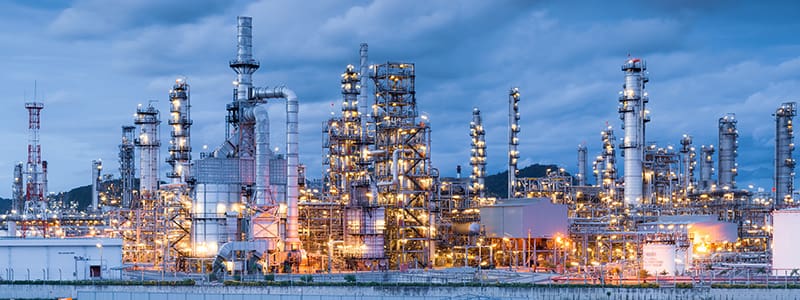Chemical production and refining play a critical role in producing essential fuels for power, heat and transportation while also creating vital inputs for key U.S. exports and products we use every day.
The chemical and refining industries are the largest emitting subsectors of the U.S. manufacturing economy, comprising 11% of energy-related CO2 emissions and 37% of all manufacturing energy-related CO2 emissions. However, U.S. producers are 65% cleaner than their Chinese competitors. Clean energy like hydrogen, nuclear power, carbon capture, utilization and storage and low-emissions feedstocks (e.g., biomass, recycling) are important technologies to reduce emissions from these sectors. It is key that the U.S. reshore and reinvest in manufacturing, where American environmental standards are responsible, unlike China.

Source: DOE Pathways to Commercial Liftoff: Industrial Decarbonization
Together, chemical production and refining emissions are anticipated to grow by approximately 20% by 2050 due to a 35% increase in demand. As demand increases, the U.S. has the opportunity to lead the way forward in clean chemical manufacturing while reducing emissions.
Many innovative technologies are used to produce clean American chemicals and refined goods. A number of emissions reduction goals exist in industry, i.e., companies like Eastman, Dow and BASF. Sixty percent of forecasted manufacturing emissions reductions will come from technologies that are still in the conceptual or developmental stage. Supporting the scale-up of these technologies and their applications in the chemicals and refining sectors is critical to America’s success as a manufacturing powerhouse.
Preserve Key Policy Wins - Reauthorize and amend the Clean Industrial Technology Act, which expires in 2025, by enhancing coordination for federally funded projects and strengthening the Department of Energy’s research, development and demonstration work on the chemical and refining sub-sectors.
Level Up American Manufacturing - Amend 45X Advanced Manufacturing Production Tax Credit to include innovative technologies like inert electrodes for electrolyzer production to reduce the cost of electrolyzers used to produce clean hydrogen, an important fuel and feedstock for the chemical and refining subsectors.
Grow Feedstock Opportunities - The Section 9003 Biorefinery, Renewable Chemical and Biobased Product Manufacturing Assistance Program reauthorization could be amended to include (1) the restoration of the grant program for pilot- and demonstration-scale facility development, (2) emissions reduction as selection criteria and (3) obligated funds. This is an opportunity for further oversight like in S. 2987, Agricultural Biorefinery Innovation and Opportunity Act.
Over the past few years, policymakers have made significant investments in the future of American chemical manufacturing and refining, including the following:

